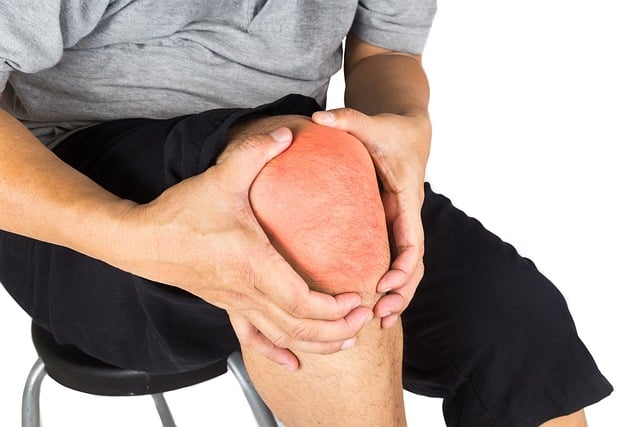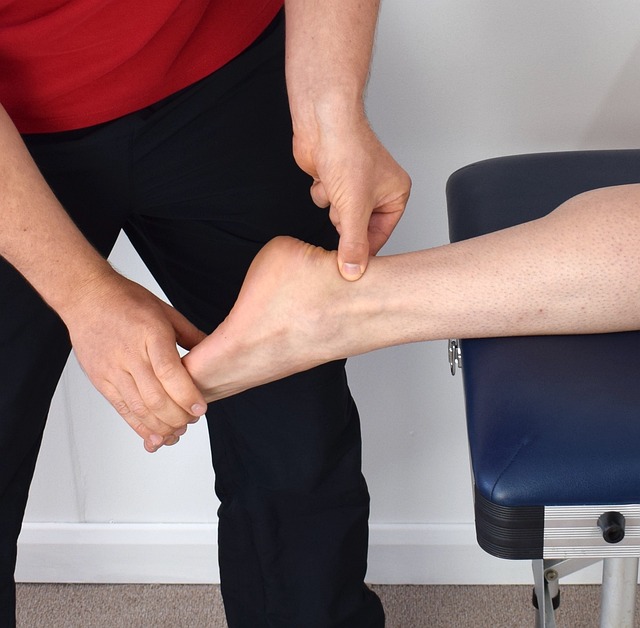Transforming Pain into Progress: Lifestyle Strategies for Managing Arthritis Discomfort
Introduction:
Arthritis presents a significant challenge for those affected, but adopting lifestyle changes can greatly alleviate pain and enhance daily functioning. These adjustments, when combined with medical treatments, form a robust strategy for managing arthritis symptoms effectively.
Understanding Arthritis:
Arthritis encompasses a range of conditions characterized by joint inflammation, leading to discomfort, stiffness, and restricted mobility. Among the prevalent types are osteoarthritis (OA) and rheumatoid arthritis (RA). While no outright cure exists, lifestyle modifications serve as pivotal tools for symptom management and slowing disease progression.
Arthritis pain can affect numerous areas of the body, contingent on the type of arthritis and the joints involved. Here are descriptions of typical locations where arthritis pain might arise:
1. Hands and Fingers: Arthritis often targets the delicate joints of the hands and fingers, leading to discomfort, stiffness, and swelling. Tasks requiring intricate finger movements, like writing or fastening buttons, can become arduous.
2. Wrists: Arthritis in the wrists can bring about pain and restricted movement, complicating everyday actions such as typing or lifting objects.
3. Knees: Pain, stiffness, and swelling in the knees are common symptoms of knee arthritis, especially noticeable during activities that bear weight, such as walking or stair climbing.
4. Hips: Arthritis in the hip joints can restrict mobility and induce pain, particularly evident when standing up from a seated position or engaging in activities necessitating hip movement.
5. Spine: Various types of arthritis can affect the spine, resulting in back pain, stiffness, and diminished flexibility. Nerve compression may also occur, causing radiating pain in the arms or legs.
6. Feet: Arthritis commonly affects the joints of the feet, including those in the toes and ankles. This can cause pain, swelling, and difficulty with walking or prolonged standing.
7. Shoulders: Arthritis-related pain, stiffness, and limited range of motion can occur in the shoulder joints, impacting tasks like reaching overhead or lifting objects.
8. Elbows: Arthritis may cause pain, stiffness, and restricted movement in the elbow joints, making activities such as lifting or bending the arms challenging.
9. Ankles: Arthritis in the ankle joints can lead to pain, swelling, and instability, making walking or standing uncomfortable.
10. Toes: Joints in the toes, especially the big toe, can be affected by arthritis, resulting in pain, stiffness, and difficulty wearing certain types of shoes or walking.

Dietary Tweaks:
1. Embracing Anti-inflammatory Foods: Integrating omega-3 rich sources like salmon, flaxseeds, and walnuts into your diet can dampen inflammation, a key contributor to arthritis discomfort. Likewise, vibrant fruits and vegetables such as berries, spinach, and kale offer antioxidants that combat inflammation.
2. Steering Clear of Trigger Foods: Certain dietary choices exacerbate arthritis symptoms. Processed foods, sugary snacks, and refined carbs tend to heighten inflammation and joint pain. By reducing or eliminating these from your diet, you can potentially find relief.
3. Weight Regulation: Maintaining a healthy weight is paramount for arthritis management, particularly in OA. Excessive weight adds strain to joints, intensifying pain and inflammation. A balanced diet coupled with portion control aids in weight management, thus easing symptoms.
Exercise and Physical Activity:
1. Opting for Low-Impact Exercises: Activities like swimming, cycling, and yoga provide valuable benefits for arthritis sufferers. They strengthen muscles, enhance flexibility, and alleviate joint pain without subjecting them to excessive stress.
2. Prioritizing Strength Training: Incorporating strength exercises targeting muscles around affected joints helps stabilize them. Leg lifts, bicep curls, and squats are excellent choices for building strength and supporting arthritic joints.
3. Embracing Stretching: Regular stretching routines improve joint flexibility and reduce stiffness. Employ dynamic stretches before exercise and static stretches after to enhance mobility and range of motion.
4. Enhancing Balance and Stability: Arthritis often impairs balance and coordination, raising the risk of falls. Engage in balance and stability exercises like single-leg stands or using a balance board to improve proprioception and prevent injuries.

Stress Management:
Chronic pain and stress frequently coexist, intensifying arthritis symptoms and diminishing well-being. Integrating stress management techniques into daily life can significantly alleviate pain and promote overall health.
1. Practicing Mindfulness Meditation: Dedicate time each day to mindfulness meditation or deep breathing exercises to reduce stress and pain perception, fostering better coping mechanisms.
2. Exploring Cognitive Behavioral Therapy (CBT): CBT equips individuals with strategies to reframe negative thoughts and cope with pain effectively. Seeking guidance from a CBT-trained therapist can provide valuable tools for managing arthritis challenges.
3. Embracing Relaxation Techniques: Experiment with relaxation methods such as progressive muscle relaxation or guided imagery to induce relaxation and alleviate tension.
Sleep Hygiene:
Quality sleep is crucial for individuals with arthritis, as it directly impacts pain levels and overall health.
1. Establishing a Consistent Routine: Maintain a regular sleep schedule, retiring and waking up at consistent times each day to regulate your body's internal clock and promote better sleep quality.
2. Creating a Relaxing Sleep Environment: Ensure your bedroom is conducive to sleep by keeping it dark, quiet, and cool. Invest in a supportive mattress and pillows to ease joint discomfort.
3. Limiting Screen Time: Minimize exposure to screens before bedtime, as the blue light emitted disrupts sleep patterns. Engage in calming activities like reading or gentle stretching to signal your body it's time to unwind.

Supplements Guidance for Managing Arthritis Pain
Dealing with arthritis often prompts a search for effective pain relief methods. Alongside lifestyle adjustments and medical interventions, integrating certain supplements into your regimen might offer added support and comfort. Here's a guide to supplements commonly utilized in managing arthritis pain, emphasizing originality and clarity:
1. Glucosamine and Chondroitin:
Glucosamine and chondroitin, naturally occurring compounds in cartilage, are frequently combined as supplements to bolster joint health and diminish arthritis discomfort. Glucosamine aids in cartilage production, while chondroitin maintains its structure and elasticity. Although results may take time, this combination has shown promise in reducing pain.
2. Omega-3 Fatty Acids:
Found abundantly in fish oil supplements, omega-3 fatty acids possess anti-inflammatory properties that can mitigate arthritis-related inflammation and pain. Incorporating these fats into your diet or taking supplements may alleviate stiffness and enhance joint mobility, provided you choose reputable sources and consult a healthcare provider for proper dosing.
3. Turmeric/Curcumin:
Turmeric, renowned for its active compound curcumin, boasts potent anti-inflammatory and antioxidant effects. Research indicates curcumin's potential to alleviate arthritis symptoms by inhibiting inflammatory pathways. Supplementing with turmeric or curcumin extracts may complement conventional treatments, provided supplements are standardized for optimal curcumin content.
4. Vitamin D:
Vitamin D is pivotal for bone health and immune function. Insufficient levels have been linked to heightened arthritis risk and joint pain. Supplementation may improve joint health, especially in cases of deficiency. Sun exposure and dietary sources should also be considered alongside supplementation.
5. Boswellia:
Derived from the Boswellia serrata tree, Boswellia contains compounds with anti-inflammatory properties. It may aid in reducing arthritis-related pain and enhancing joint function. Available in various forms, Boswellia supplements can be integrated into an arthritis management plan for potential relief.
6. Methylsulfonylmethane (MSM):
MSM, a sulfur-containing compound, is crucial for collagen, cartilage, and connective tissue formation. Its anti-inflammatory and analgesic properties make it a potential aid in managing arthritis pain and stiffness, particularly in osteoarthritis cases.
7. Ginger:
Renowned for its anti-inflammatory and analgesic effects, ginger may help alleviate arthritis pain and swelling. Whether consumed in food or as supplements, ginger offers a natural approach to managing arthritis discomfort.
8. Green Tea Extract:
Rich in polyphenols with antioxidant and anti-inflammatory properties, green tea extract has shown promise in reducing arthritis-related pain and inflammation. Integrating it into your regimen may provide additional support for joint health.
Before incorporating any new supplements into your arthritis management plan, it's crucial to seek guidance from a healthcare professional. They can offer personalized advice based on your unique circumstances and ensure supplements are safe and suitable for you. Opting for high-quality supplements from reputable sources is essential to ensure purity and effectiveness. Integrating supplements into a comprehensive arthritis management plan alongside lifestyle changes and medical treatments may offer a holistic approach to improving joint health and reducing pain.
Conclusion:
Effective arthritis management entails a comprehensive approach involving dietary adjustments, regular exercise, stress management techniques, and prioritizing quality sleep. By integrating these lifestyle changes into daily routines, individuals can effectively manage symptoms, enhance joint health, and improve overall well-being. Collaborating with healthcare professionals to tailor a personalized treatment plan is key to optimizing arthritis management.

Frequently Asked Questions (FAQ) on Managing Arthritis Pain Through Lifestyle Changes
1. How do dietary adjustments contribute to relieving arthritis pain?
Dietary changes play a pivotal role in managing arthritis by reducing inflammation and supporting joint health. Incorporating foods rich in omega-3 fatty acids and antioxidants can help alleviate pain and discomfort associated with arthritis.
2. Which types of exercises are recommended for individuals with arthritis?
Low-impact exercises like swimming, cycling, and yoga are ideal for arthritis sufferers as they strengthen muscles, improve flexibility, and minimize joint stress. Strength training exercises targeting muscles around affected joints and regular stretching routines can further enhance joint mobility and alleviate pain.
3. What role do stress management techniques play in arthritis pain management?
Stress exacerbates arthritis symptoms. Techniques such as mindfulness meditation, cognitive behavioral therapy (CBT), and relaxation exercises help reduce stress levels, lower pain perception, and improve coping mechanisms, leading to better arthritis management.
4. Why is quality sleep important for people with arthritis?
Quality sleep directly impacts pain levels and overall well-being in arthritis patients. Establishing a consistent sleep schedule, creating a conducive sleep environment, and minimizing screen time before bed can enhance sleep quality and alleviate arthritis-related pain and inflammation.
5. How can individuals customize these lifestyle changes to suit their specific needs?
Collaborating with healthcare professionals allows individuals to tailor lifestyle changes to their unique circumstances. Seeking advice from a nutritionist, working with a physical therapist to develop an exercise regimen, and discussing stress management and sleep hygiene strategies with healthcare providers are essential steps.
6. Apart from the mentioned strategies, what other lifestyle changes can complement arthritis management?
Incorporating relaxation techniques, maintaining good posture, and using assistive devices can further enhance arthritis management. Additionally, staying hydrated, managing stress levels, and avoiding smoking can positively impact arthritis symptoms.
7. Can weight management affect arthritis pain?
Yes, maintaining a healthy weight is crucial for managing arthritis, especially osteoarthritis. Excess weight adds strain to joints, worsening pain and inflammation. A balanced diet and portion control are key components of weight management for arthritis patients.
8. Are there any specific foods that arthritis patients should avoid?
Certain foods can exacerbate arthritis symptoms. Processed foods, sugary snacks, and refined carbohydrates tend to increase inflammation and joint pain. Limiting or avoiding these foods can help alleviate symptoms for some individuals.

9. How frequently should arthritis patients engage in exercise?
Regular exercise is important for arthritis management, but the frequency and intensity should be tailored to individual abilities and limitations. Starting with gentle exercises and gradually increasing intensity is recommended. Consultation with a healthcare provider or physical therapist can provide personalized guidance.
10. Can lifestyle changes completely eliminate the need for medication in arthritis management?
While lifestyle changes can significantly reduce arthritis symptoms and improve overall quality of life, they may not eliminate the need for medication entirely. However, adopting a healthy lifestyle can complement medical treatments and may reduce the dosage or frequency of medication needed for symptom management. It's important for individuals to work closely with their healthcare providers to develop a comprehensive treatment plan that addresses their specific needs.
11. How do glucosamine and chondroitin supplements alleviate arthritis pain?
Glucosamine and chondroitin are vital components of cartilage. Together, they support joint health by promoting cartilage repair and reducing inflammation, ultimately relieving arthritis pain and improving mobility.
12. Are omega-3 fatty acids effective in reducing arthritis inflammation?
Yes, omega-3 fatty acids found in fish oil supplements possess potent anti-inflammatory properties. They can help alleviate arthritis-related inflammation, stiffness, and discomfort, contributing to improved joint function and overall well-being.
13. What are the benefits of turmeric or curcumin for arthritis sufferers?
Turmeric contains curcumin, a powerful anti-inflammatory compound. Curcumin supplements have shown promise in reducing arthritis pain and inflammation by targeting inflammatory pathways, offering a natural and effective approach to managing symptoms.
14. Why is vitamin D supplementation important for arthritis management?
Vitamin D plays a crucial role in bone health and immune function, both of which are relevant to arthritis management. Supplementing with vitamin D can enhance joint health, reduce inflammation, and alleviate arthritis symptoms, especially in cases of deficiency.
Powered by Froala Editor





Leave a Reply